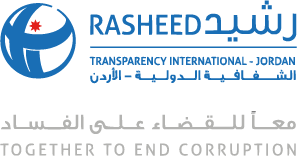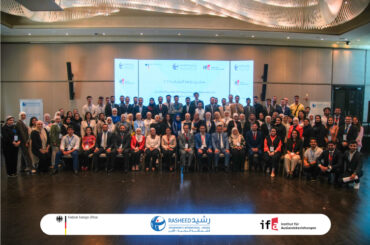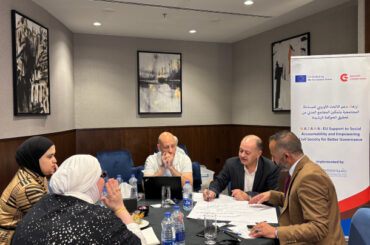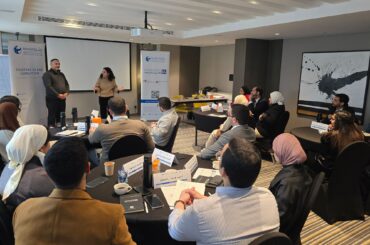The Arab region is faced with significant land governance and tenure security challenges, which underscore the need for land reforms. However, the inadequate and/or lack of land tenure data further exacerbates this situation, making it unclear what is the real situation for most communities and countries in the region. Noteworthy is the launch of the Arab Land Initiative established in 2016 – an initiative that has opened the doors for national land administration and data organizations, including National Statistics Organizations (NSOs) and Civil Society Organizations (CSOs), to engage in dialogue about the state of affairs, and brought opportunities to strengthen institutional capacities for data collection and reporting on land issues. Overall, lack of land data and statistics remains a setback to efforts that promote transparency and accountability, which inspires collaboration and partnerships to promote evidence based decision in land reform processes.
Taking advantage of global dynamics and initiatives regarding land governance monitoring, including that of land indicators in the SDGs, the New Urban Agenda, and the aspirations of the VGGTs, it presents the best opportunity to develop regional land and data institutional capacities to track and measure progress.
Rasheed for Integrity and Transparency (Transparency International – Jordan) has conducted two intensive training sessions on Monitoring Land Governance and Tenure Security, focusing on the Middle East and North Africa sub-regions, with three days designated for each. This training course is the first-of-its-kind in the MENA region, which was attended by over 120 participants from more than 20 countries.
The training course is a part of the Arab Land Initiative’s stream of work, and was delivered in partnership with the UN-Habitat/Global Land Tool Network (GLTN) and International Land Coalition, hosting a myriad of land sector experts and participants from Arab and non-Arab countries in MENA region. It provided the participant a unique opportunity to engage in expertise exchange with each other aiming to address the issues of the sector and improve its performance, each in their respective countries by sharing their experience and best practices.
The trainings have also hosted discussions and focused on supporting national stakeholders with the development of their capacities in collecting, analyzing and reporting on land-related data and reporting on SDG indicators 1.4.2, 5.a.1 and 5.a.2. Experts from the GLTN/UN-Habitat, International Land Coalition, Global Land Alliance, World Bank, FAO and International Food Policy Research Institute discussed the different issues facing the land sector in the region, as well as the technical capacities required to face identified challenges and monitor progress of land governance and tenure security. Moreover, the learning course also provided an in-depth training on the available tools and methodologies for land monitoring, like LANDex, Prindex, GLII, Land Matrix and MELA.
Attendees comprised of the representatives from the governmental sector and civil society organizations as well as individual professionals and academia. Such a diversity of participants allowed them to learn from each other and establish a holistic network of experts in the sector. By developing new relationships among the stakeholders it will be opportune to facilitate effective communication between them and initiate future collaboration and development of resources needed for the enhancement of land sphere in the region, and in particular land governance.
This training course serves as a basis for future Expert Group Meeting and is an important milestone in the roadmap towards developing and enhancing monitoring of land governance and tenure security, quality of land data, as well as methodologies for data collection in the Arab region.




